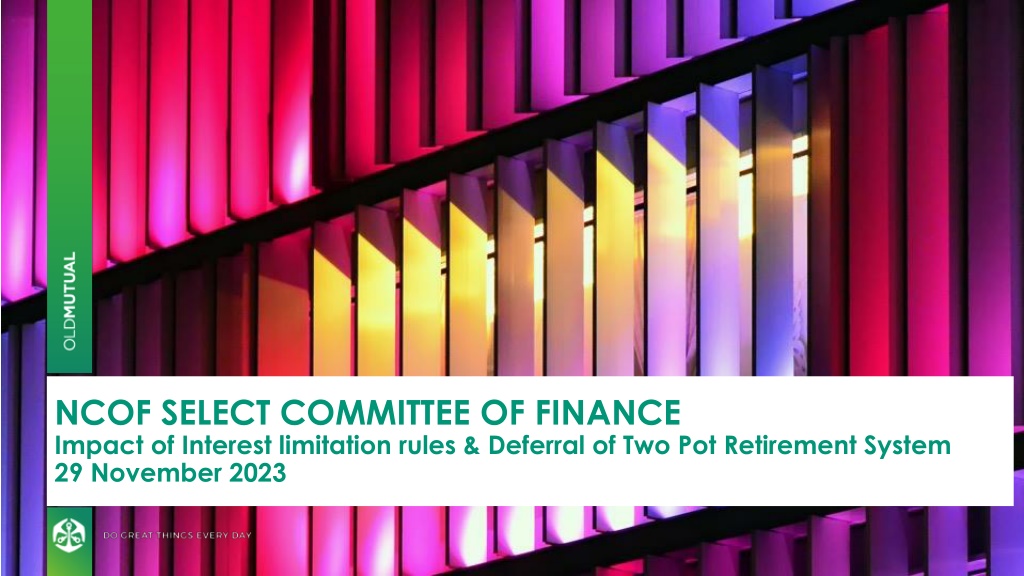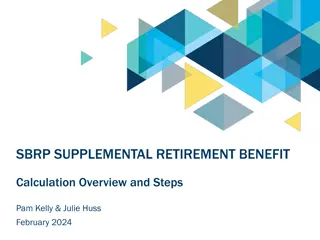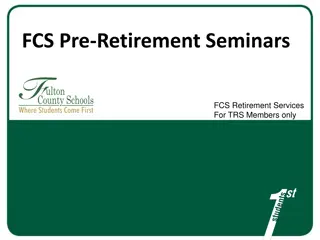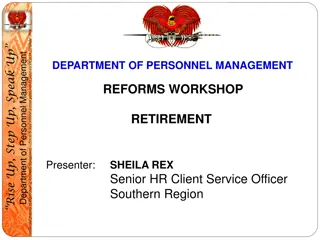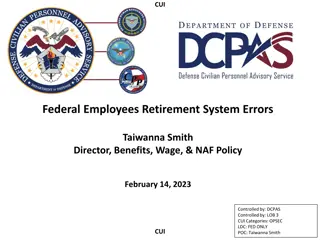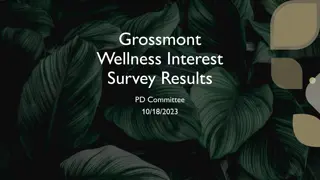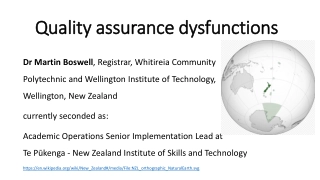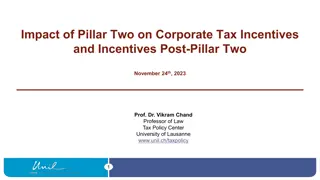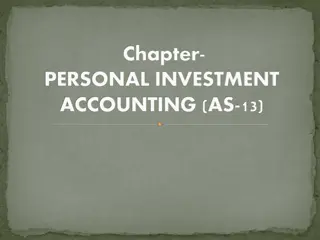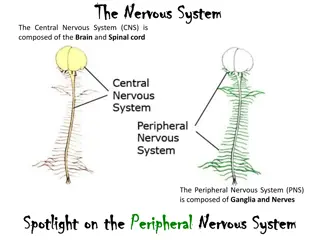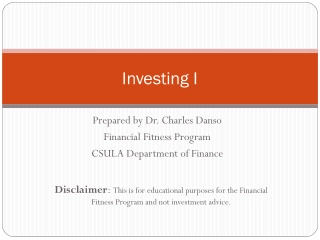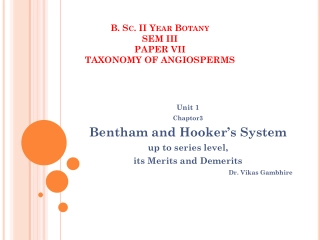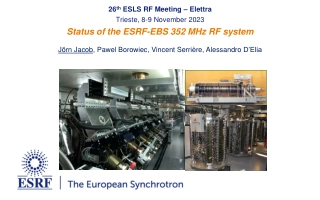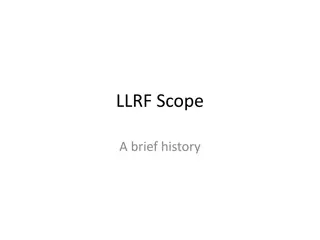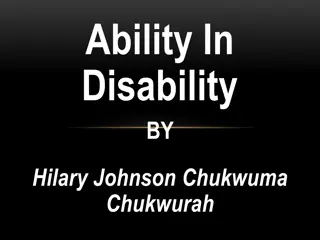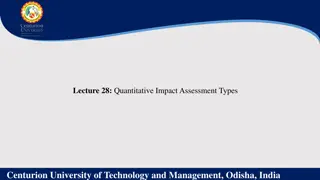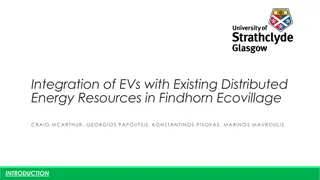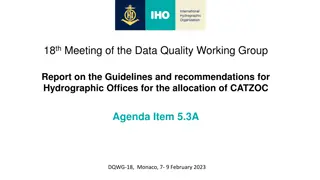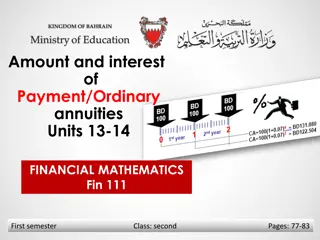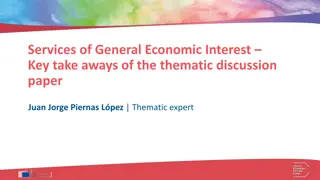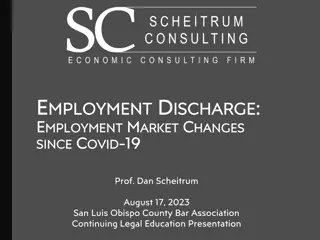Impact of Interest Limitation Rules & Deferral of Two Pot Retirement System
The NCOF Select Committee of Finance discusses the impact of interest limitation rules and the deferral of the Two Pot Retirement System. Delays in legislative processes, implications for pension funds and retirement savings, challenges with fund withdrawals, and the appeal for changes in implementation dates are key points highlighted in the content.
Download Presentation
Please find below an Image/Link to download the presentation.
The content on the website is provided AS IS for your information and personal use only. It may not be sold, licensed, or shared on other websites without obtaining consent from the author. Download presentation by click this link. If you encounter any issues during the download, it is possible that the publisher has removed the file from their server.
Presentation Transcript
NCOF SELECT COMMITTEE OF FINANCE Impact of Interest limitation rules & Deferral of Two Pot Retirement System 29 November 2023
Contents Deferral of the Timing of The Two Pot Retirement System Section 23M Focused Lens: Impact on South African Citizens Key Tenet of a Taxing System: Fairness and equity amongst taxpayers Appeal to SCOF APPENDIX : Key principles of section 23M Illustrative example 2
Deferral of the Timing of Two Pot Retirement System Legislative cycle In particular, the Pension Fund Amendment Act and the Taxation Laws Amendment Act need to be passed by Parliament and then signed into law by the President. This is dependent on the legislative cycle Impact on pension funds, retirement funds Each fund and its trustees are required to consult its members regarding the changes to the rules and to communicate clearly to members what the impacts on their future contributions may be. The rules of the funds must be amended ONLY once the legislative changes are finalised. Then ONLY can the amended rules be presented to the FSCA for approval - in fact, ALL retirement funds are impacted by the two-pot system and must follow this process Withdrawal of savings pot cannot be honoured until the rules are approved this has the potential to escalate to civil unrest/danger to fund employees/reputational damage even though this is beyond the control of trustees and retirement administrators. SARS SARS system changes need to be operational and interface with fund administrators, before the process can be implemented (SARS must, on request, furnish - and each administrator must be capable of downloading - each taxpayer s effective marginal tax rate) Administrators Whilst fund administrators are working on system/process modifications, in the absence of absolute certainty from SARS eg: IT system builds cannot be completed until SARS finalises the taxation of withdrawals systems cannot be operationalised to cater for savings pot withdrawals NOTE: Despite best efforts it is not possible to complete the above by the proposed implementation date of 01 March 2024 - 3 months from today (including a December holiday season) 3
Two Pot System: Appeal to SCOF APPEAL It is anticipated that due to the tough economic times the proposed change will be attractive to a number of retirement fund members. To ensure adequate administration of these benefits, we appeal to the Committee to: Delay implementation date for the Two Pot System to 01 March 2025 to allow sufficient time for retirement funds and its trustees/fund administrators, regulators and SARS to appropriately customise technology/ IT systems to cater for the changes As an alternative, allow a 6-month period from the effective date to allow funds to operationalise the changes to comply with the rules 4
Interest limitation rules: Impact on South African Citizens Pensioners R5bn pa loss in pension benefits (SAPOA submission to National Treasury 31 August 2023, extrapolated based on a basket of retirement funds) Salaried employees are the greatest contributors to tax coffers (R601.7billion: SARS Media Statement 03 April 2023). Retirement benefits only cover 30% of pensioners living costs; increasing the risk of dependency on the State (Daily Investor: National Treasury comments 13 September 2023) South Africans are generally not known as a savings nation: National savings rate just 15% of GDP in 2022, well below the 34% average for emerging economies (Business Day: 12 September 2023) Tax policy is designed to encourage and preserve savings particularly in light of these low levels of savings in SA Retirement Funds usually invested in Unlisted Property Sector, where tax is paid in the entity itself. The proposals have the effect of immediately eroding pension benefits. Where excess interest is carried forward and deducted in later years, this deduction prejudices current members and subsidises future members of the pension fund Retirement Funds Multi-Layered Investments in Property: Reduced returns discourages/disincentivises investment in Unlisted Property Sector (valued at R200bn andpredominantly held by the (Retirement Funds)). This uneven playing field between the unlisted and listed property market has resulted in the Listed REIT Sector growing in value to R300bn (25 years ago: R10bn). The growth rate in Unlisted Sector has been stagnating/retarded (SAPOA submission to National Treasury 31 August 2023) Local Government Funds: Also impacted. Whilst the Government Employees Pension Fund is a defined benefit plan, the taxpayer ultimately carries the cost of the impact of section 23M on government retirement funds. 5
Interest limitation rules: a focused Lens on the Impact on South African Citizens Unlisted Property Sector: Corporate Taxpayer (The Unlisted Property Sector holds, incubates and develops properties that could be sold to the Listed REIT sector. Due to the long lead time taken to develop properties listed REITS do not have appetite for developments as it will negatively impact annual returns) (SAPOA submission to National Treasury 31 August 2023) Significant employer: Proposals have the possible impact of stunting this sector, possibly with negative impact on job creation Could discourage direct investment in domestic Unlisted Property Sector (in favour of direct investment outside SA borders) Development Impact Funds (invests in social upliftment projects eg: Old Mutual Impact Investment Funds have +/- R7.2billion under management, invested in assets/communities where gaps/backlogs in social infrastructure have been identified with a focus on Housing, Education and Financial Inclusion opportunities. Investors in these funds are mainly Retirement funds, Development Bank of South Africa, Public Investment Corporation) Adversely affected due to reduced returns which could result in disinvestment and increased dependency for social infrastructure development on the State. Infrastructure Funds (Hold investments with a primary objective of developing, constructing and/or maintaining physical assets and technology structures and systems for the provision of utilities, services or facilities for the economy, businesses, or the public) Has the potential to stifle Private Sector investment due to reduced returns (investment in SA Infrastructure has declined from 18% (2020) to 14% (2021), compared to the 30% average for emerging markets) (Engineeringnews: Funding SA s Infrastructure Spending Gap January 2022) Appears to be in conflict with the objectives of fiscal policy: (1)the Just Energy Transition Investment Plan released by the Office of the Presidency (Just Energy Transition Investment Plan 2023-2027) which required R500bn Private Sector investment and (2) Regulation 28 of the Pensions Funds Act which has been relaxed to encourage and promote infrastructure investment. NOTE: Government s Reconstruction and Recovery Plan identified infrastructure development as a key generator of poverty alleviation, job creation and economic growth (Engineeringnews: Funding SA s Infrastructure Spending Gap January 2022) 6
Key Tenet of a Taxing System: Fairness & Equity amongst Taxpayers Property OWNED VIA LISTED REIT PROPERTY CO (Pre-2013) Property OWNED VIA UNLISTED Property OWNED VIA UNLISTED PROPERTY CO (Post-2013) Property OWNED DIRECTLY by Retirement Fund: NOT equipped to manage a portfolio of property assets Exempt from income tax and CGT if property held directly not through a subsidiary if shares held in a property holding subsidiary, taxed in full REIT: NIL Taxable Income as profits are distributed to unit holders and can be claimed as a deduction in full. No CGT for REIT or its subsidiaries. Investor: Taxed on Income (if no specific exemption as for retirement funds) Property Co: No limit on interest deduction. Subject to CGT on disposal of properties or shares in another Property Co Investor: Taxed on Interest Income if no specific exemption from tax. Taxed on Dividends (unless exempt from Dividends Tax (DWT)) Property Co: Significant taxable income arises due to (1)limited interest deductions and (2) limitation on assessed loss rules. Subject to CGT on disposal of properties or share in another Property Cos Investor: Taxed on Interest Income (if no specific exemption from tax, as for retirement funds). Taxed on Dividends (unless exempt from DWT) Property Co: Can borrow subject to covenants. TAX FLOW THROUGH Property Co: Can borrow subject to covenants. Regulatory restrictions on borrowing make it difficult to source funding ABILITY TO BORROW REIT: can borrow subject to JSE Limits REIT: Specialist skills hired to manage property as a class of assets Property Co: Specialist skills hired to manage property as a class of assets Property Co: Specialist skills hired to manage property as a class of assets Not equipped to manage a property portfolio. Makes sense to outsource ABILITY TO MANAGE INTERNALLY / OPERATIONALISE / GOVERNANCE Source: derived from SAPOA submission to National Treasury 31 August 2023 7
Appeal to SCOF Taxation of Retirement Funds/Pensioners Retirement funds are exempt from tax BUT tax is generally paid (1) on investment income in the investee entity; (2) by pensioners on the ultimate payment of retirement benefits (3) employee deductions for contributions to retirement funds are limited Retirement funds invested in Unlisted REITs indirectly suffer the tax and ultimately receive 27% lower annual returns and thus lower pension payouts to pensioners than when invested in Listed REITs NOTE: Pensioners consequentially suffer the burden of tax twice (in the investee company and on receipt of pension benefits) when retirement funds are invested in Unlisted REITs versus Listed REITs Stop Gap Measure: Extend the exclusion in section 23M(6) to cater for Unlisted Property Sector by removing reference to: linked units (ie a debenture and share linked and traded together as a single unit). This to cater for all forms of funding not limited to linked units (eg loans, debentures, bonds, etc) 01 January 2013 date, to include funding secured by Unlisted REITS after that date (to create parity in the tax treatment of interest payable by unlisted REITS pre-01 Jan 2013 and post-01 Jan 2013) Expand the exclusion to include direct or indirect interest-bearing funding from regulated institutions such as retirement funds and life insurance companies. NOTE: The Stop Gap measure above will not address the disparity between listed and unlisted REITS on the payment of CGT on disposal of property assets (which listed REITs enjoy) which we request the SCOF to consider. Proposed solution in the interest of Fairness, Equity & Parity between Unlisted and Listed REITS To level the playing field, extend the ambit of existing listed REIT legislation (in section 25BB) to the Unlisted Property Sector once the Conduct of Financial Institutions Bill (COFI Bill) which now includes Unlisted REITs - is effective, and includes regulation akin to listed REITs ((ie minimum asset size, maximum gearing levels, minimum level of rental income, minimum level of distributions) 8
APPENDIX: Key principles of section 23M Illustrative example Old Mutual Life Assurance Company (SA) Limited is a licensed FSP and Life Insurer.
Key Principles: Section 23M Primary Concern: Base erosion arising specifically on cross border borrowing Limits interest deductions when there is loss to the fiscus: SA Borrower (creditor) claims a full tax deduction for funding from an offshore lender and Related interest income (debtor) is exempt from/not subject to SA tax Focus on Anti-Tax Avoidance: Tax status of lender (creditor): Persons not subject to SA tax (ie non-resident, Untaxed Policyholder Fund (UPF) in a Life co, Pension Fund investors exempt from tax, etc) Whether there is a controlling relationship : at least 50% of equity shares or voting rights (partnership structures also caught as partners are connected persons in which case partners interests are cumulatively assessed to determine controlling relationship) Exclusion: For so-called linked units issued on or before 01 January 2013 held by retirement funds (Pension funds, Provident funds, RAFs), REITs, Short-term Insurers and Long-term Insurers (collectively referred to as Insurers ) Post-01 January 2013: NT acknowledged that the interest limitation rules prevents these linked unit structures from fully deducting their interest expenditure and puts the Unlisted REITs at a disadvantage when compared to listed REITs and proposed to introduce legislation to combat this. This never materialised amid concerns that the unlisted REIT sector was relatively unregulated Arguably, as investors in unlisted property as a class of assets are predominantly regulated institutions such as retirement funds and insurers, it follows that the unlisted property sector is indirectly subject to a layer of regulation. As Listed REITS fall within the ambit of the JSE rules, NT prefers that the Unlisted Property Sector is also subject to specific regulation.The prevailing view is that, subject to minor amendments, the Conduct of Financial Institutions (COFI) Bill would be a suitable regulatory framework (ie minimum asset size, maximum gearing levels, minimum level of rental income, minimum level of distributions). (SAPOA submission to National Treasury 31 August 2023) 10
Impact of Proposed S23M: Negative Returns on Unlisted Property Sector (incl Infrastructure & Social Impact Funds) Pensioners invested in Unlisted REITs, ultimately receive 27% lower annual return and thus smaller pension payouts than when invested in Listed REITs LISTED REIT (Equity/shares) R'm UNLISTED REIT: (Company loan/Debenture) R'm Listed REITs v Unlisted REITs Pre - 2013 Post - 2013 Net operating income (EBITDA) 1300 1300 1300 Debenture interest Bank Interest paid Tax at 27% Total return after tax Pensioners pay tax twice when investing in Unlisted REITs versus Listed REITs: in the multi layered structure (the Unlisted REIT) and when receiving pension benefits -450 -450 -450 -230 620 - 0 850 850 Computation of Interest limitation rules: Section 23M does not apply to REITS as funding is in the form of equity shares 30% EBITA Interest income Interest allowed as deduction per s23M (before setting off interest not subject to s23M) Less Other interest not subject to s23M Interest allowed in terms of s23M Section 23M does not apply to linked units issued pre 1 Jan 2013 390 0 390 -450 0 s23M Interest incurred for the year 850 Excess interest to be carried forward 850 Taxable income: 1300 -450 -850 1300 -450 -850 Net operating income Less Bank Interest Less: Debenture interest allowed as deduction Taxable income: Tax at 27% 1300 -450 0 0 0 850 230 Impact on returns: Total Return Difference between Unlisted REIT return compared to listed REIT 850 850 620 0 230 % impact of return compared to Listed REITs 27% 11
THANK YOU Old Mutual Life Assurance Company (SA) Limited is a licensed FSP and Life Insurer.
